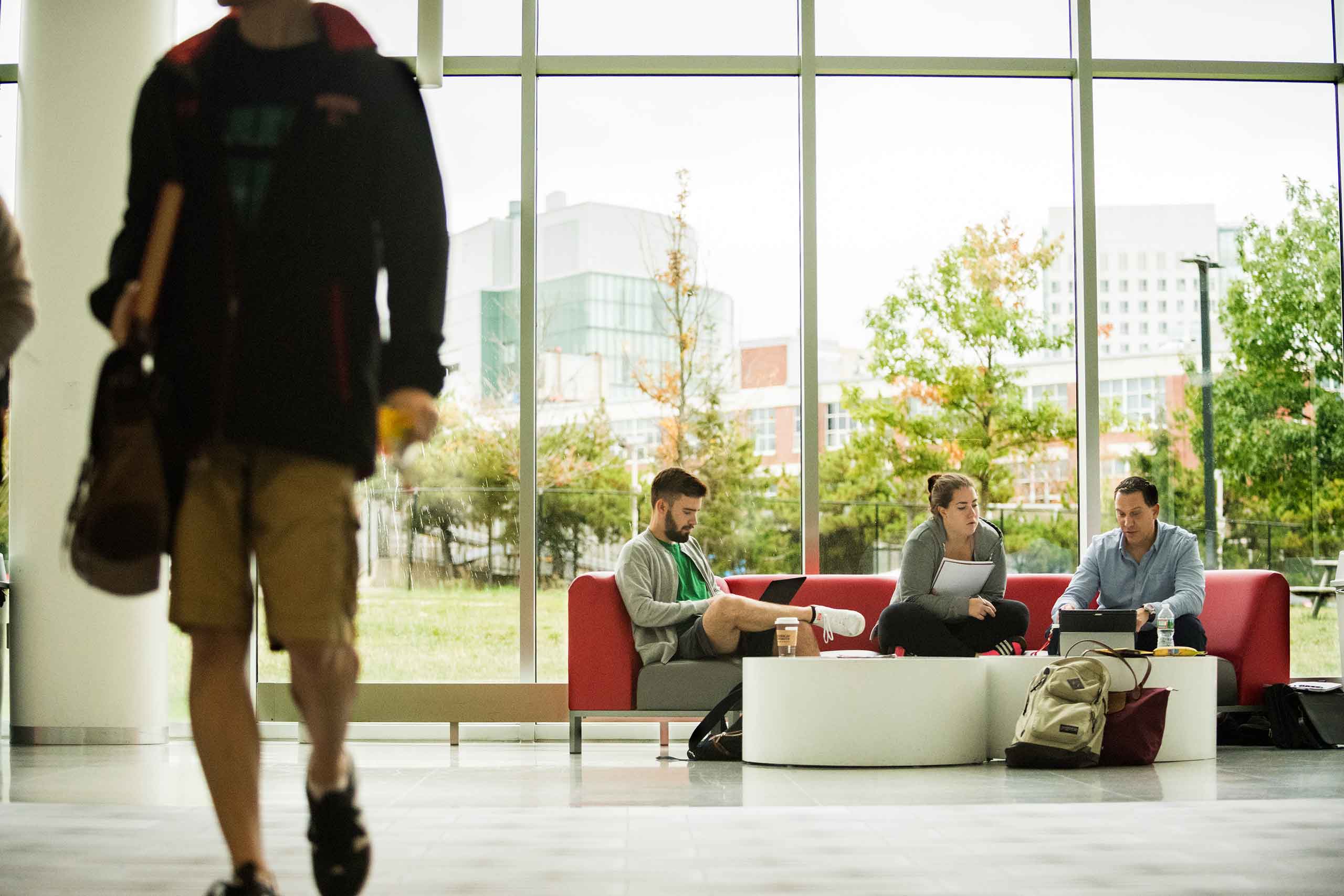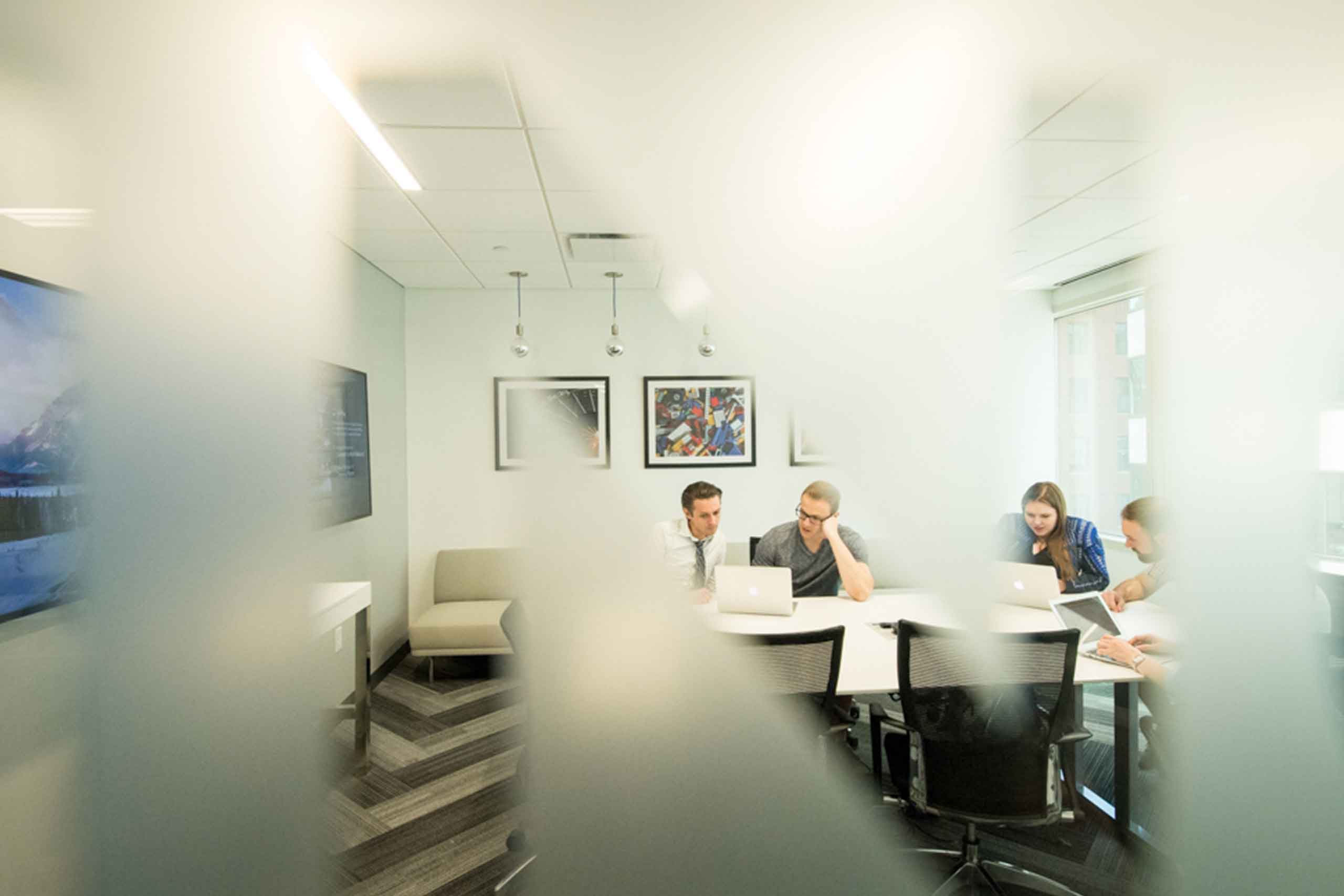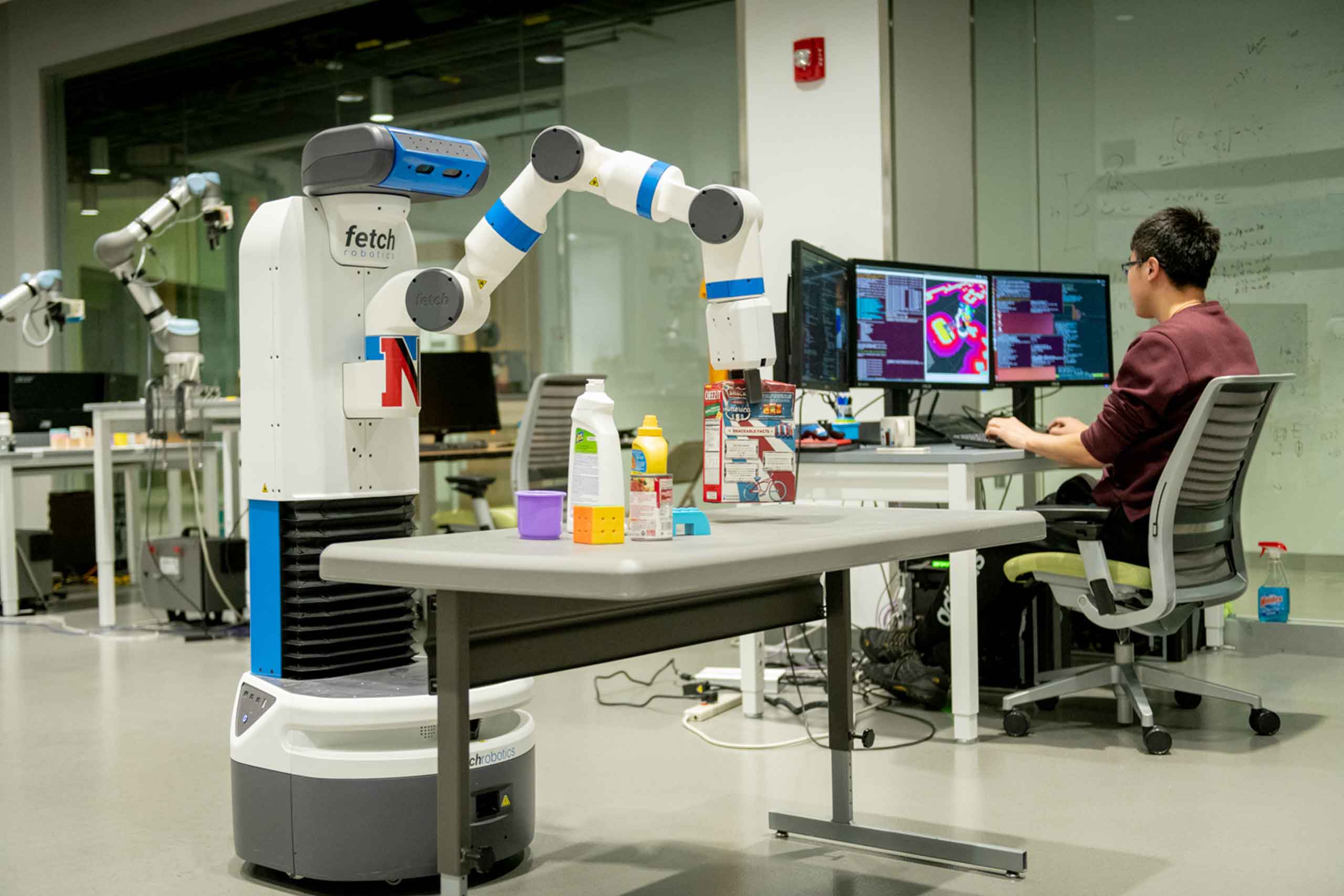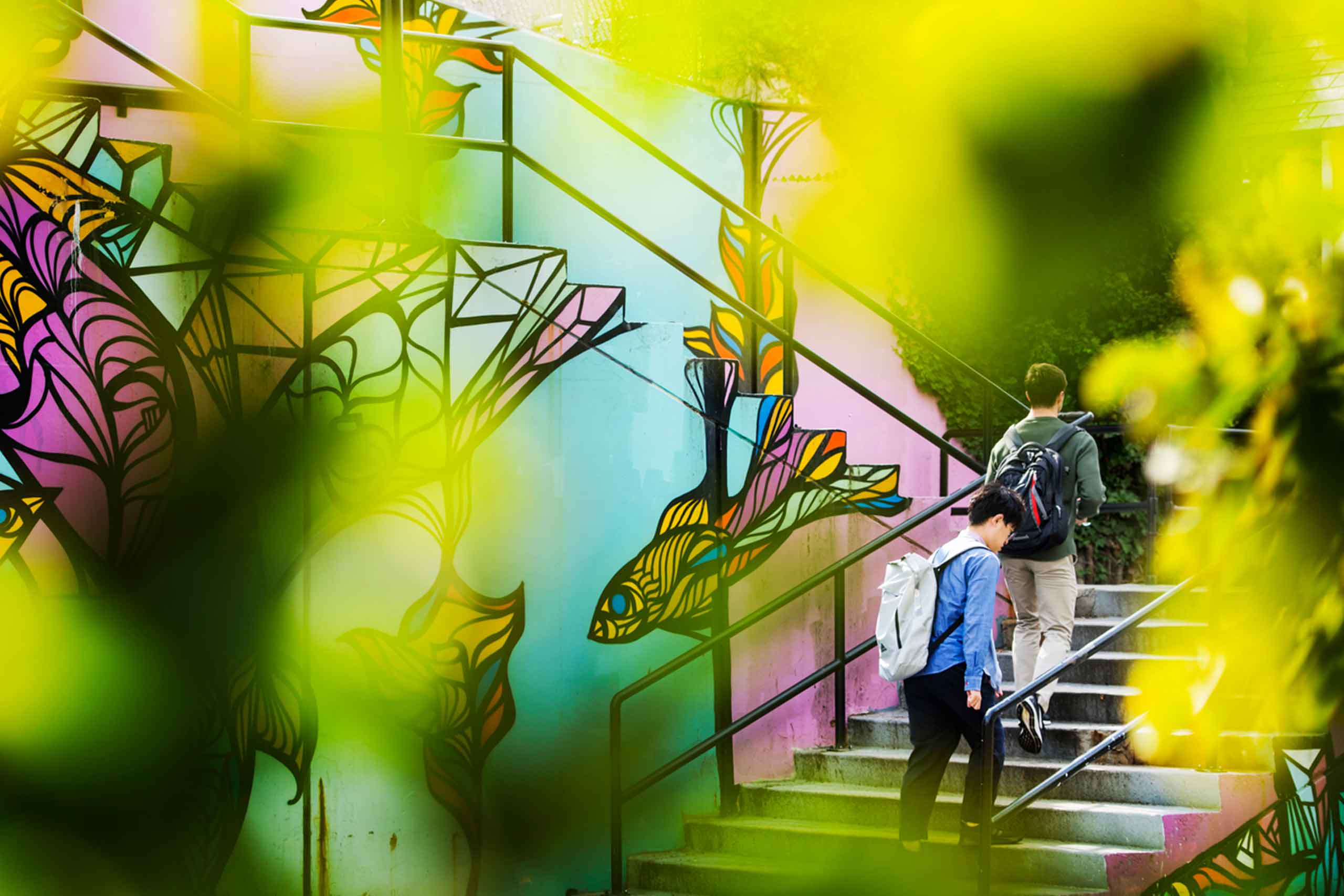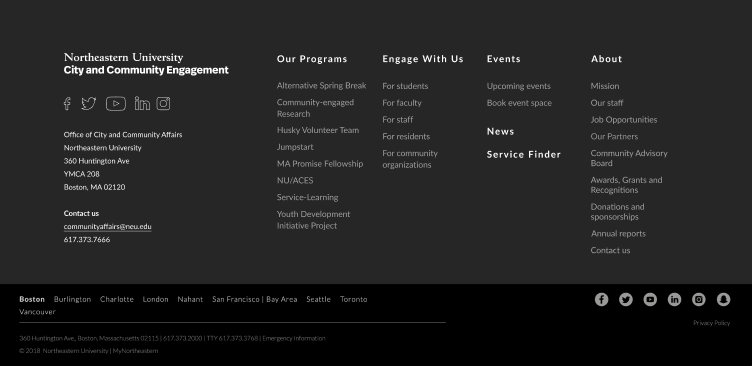

At Oakland orientation, fifth-year James Chang-Davidson highlights maker culture, cross-campus connections

Fri 09.29.23 / Zorain Nizamani

At Oakland orientation, fifth-year James Chang-Davidson highlights maker culture, cross-campus connections
Fri 09.29.23 / Zorain Nizamani
Fri 09.29.23 / Zorain Nizamani
Fri 09.29.23 / Zorain Nizamani


At Oakland orientation, fifth-year James Chang-Davidson highlights maker culture, cross-campus connections

Fri 09.29.23 / Zorain Nizamani

At Oakland orientation, fifth-year James Chang-Davidson highlights maker culture, cross-campus connections
Fri 09.29.23 / Zorain Nizamani
Fri 09.29.23 / Zorain Nizamani
Fri 09.29.23 / Zorain Nizamani
The world belongs to those who dare to think outside the box and question the old ways — experimenting and improvising, envisioning novel approaches, and proposing new ways of doing things.
This approach to work and life is something James Chang-Davidson embodies. The fifth-year computer science major is also an avid maker, a person who experiments and tweaks with do-it-yourself culture with the goal of inventing new methods and solutions.
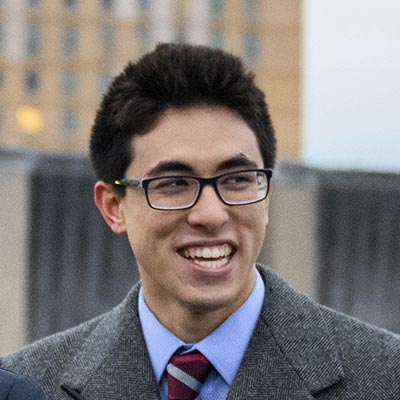
“A maker is all about the mindset, looking at the world and thinking about how you can improve it,” Chang-Davidson explains. “It is about looking at something broken, not accepting it at face value, and saying ‘Hey, I can fix it by tweaking it a little.”
That said, making is not exclusive to hardware or to a particular field of study. Instead, it transcends boundaries, and allows practitioners to unearth creative solutions and expand their horizons.
“Hardware creativity requires a lot of software, but I am also interested in looking at software development as a creative process,” Chang-Davidson says, adding that “Khoury students are not bound to work only on software-related things. There is a huge element of value in branching out into hardware and into fabrics, leather work, or glass work.”
To that end, Chang-Davidson recently returned from Northeastern University’s Oakland campus, where he served as an orientation ambassador and assisted the administration with activities designed to acclimatize students to their new surroundings. He also helped put together a maker panel discussion for the new students during orientation week, where local makers Sudhu Tewari and Eve Scarborough joined Chang-Davidson in discussing their varied maker experiences, struggles, and learning over the years.
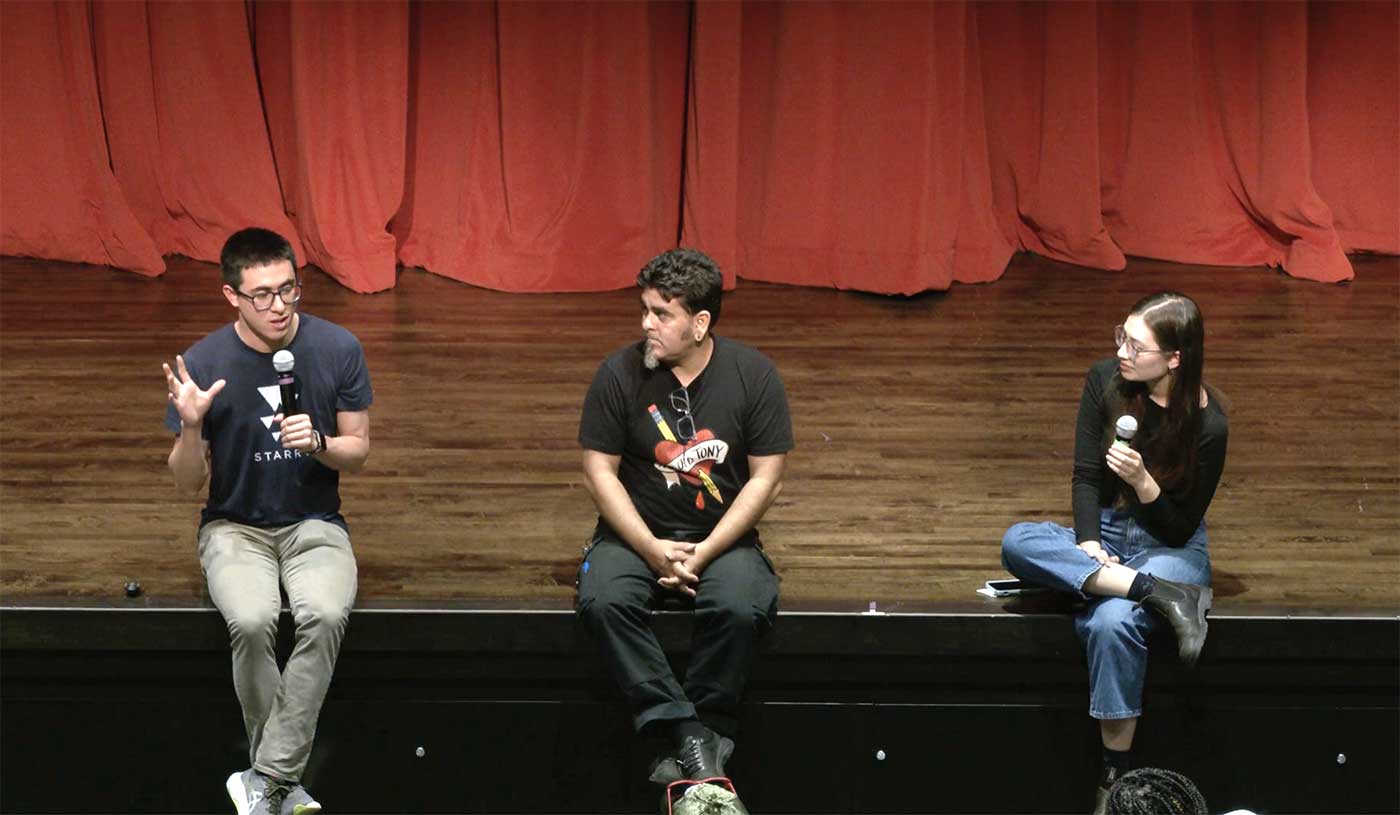 From left to right: Khoury student James Chang-Davidson, musician and artist Sudhu Tewari, and book artist and archivist Eve Scarborough.
From left to right: Khoury student James Chang-Davidson, musician and artist Sudhu Tewari, and book artist and archivist Eve Scarborough.
Apart from the on-campus event, Chang-Davidson went a mile further to ensure the new students could explore their interests. He did so by leveraging his own experiences, namely his stint as president and product manager of Northeastern Electric Racing.
READ: Northeastern Electric Racing shows out at NASCAR’s famed “Magic Mile”
“We also organized a partnership with a local industrial art school in Oakland, called the Crucible, which is actually where I first learned to weld,” he says. “We organized some trips to the Crucible where students got to participate in a wide variety of different workshops. In particular, I got to join a group of students building little leather wallets.”
Apart from the value of making, Chang-Davidson highlights the importance of consistent and effective inter-campus coordination for student experiences.
“There is a huge amount of value in building cross-campus collaborations and realizing the true potential of Northeastern as a global university,” he says. “It’s about giving these campuses a sense of community in a broader university ecosystem.”
Chang-Davidson aims to leave behind a positive impact on his fellow students, setting a precedent others can benefit from.
“This year is my final year at Northeastern, and I am hopeful that I will be able to build a lot of impactful programming with students at all of the campuses,” he says. “I am building collaborations with London students too; we’re planning more maker programming that will tie everything together across all campuses.”
The world belongs to those who dare to think outside the box and question the old ways — experimenting and improvising, envisioning novel approaches, and proposing new ways of doing things.
This approach to work and life is something James Chang-Davidson embodies. The fifth-year computer science major is also an avid maker, a person who experiments and tweaks with do-it-yourself culture with the goal of inventing new methods and solutions.

“A maker is all about the mindset, looking at the world and thinking about how you can improve it,” Chang-Davidson explains. “It is about looking at something broken, not accepting it at face value, and saying ‘Hey, I can fix it by tweaking it a little.”
That said, making is not exclusive to hardware or to a particular field of study. Instead, it transcends boundaries, and allows practitioners to unearth creative solutions and expand their horizons.
“Hardware creativity requires a lot of software, but I am also interested in looking at software development as a creative process,” Chang-Davidson says, adding that “Khoury students are not bound to work only on software-related things. There is a huge element of value in branching out into hardware and into fabrics, leather work, or glass work.”
To that end, Chang-Davidson recently returned from Northeastern University’s Oakland campus, where he served as an orientation ambassador and assisted the administration with activities designed to acclimatize students to their new surroundings. He also helped put together a maker panel discussion for the new students during orientation week, where local makers Sudhu Tewari and Eve Scarborough joined Chang-Davidson in discussing their varied maker experiences, struggles, and learning over the years.
 From left to right: Khoury student James Chang-Davidson, musician and artist Sudhu Tewari, and book artist and archivist Eve Scarborough.
From left to right: Khoury student James Chang-Davidson, musician and artist Sudhu Tewari, and book artist and archivist Eve Scarborough.
Apart from the on-campus event, Chang-Davidson went a mile further to ensure the new students could explore their interests. He did so by leveraging his own experiences, namely his stint as president and product manager of Northeastern Electric Racing.
READ: Northeastern Electric Racing shows out at NASCAR’s famed “Magic Mile”
“We also organized a partnership with a local industrial art school in Oakland, called the Crucible, which is actually where I first learned to weld,” he says. “We organized some trips to the Crucible where students got to participate in a wide variety of different workshops. In particular, I got to join a group of students building little leather wallets.”
Apart from the value of making, Chang-Davidson highlights the importance of consistent and effective inter-campus coordination for student experiences.
“There is a huge amount of value in building cross-campus collaborations and realizing the true potential of Northeastern as a global university,” he says. “It’s about giving these campuses a sense of community in a broader university ecosystem.”
Chang-Davidson aims to leave behind a positive impact on his fellow students, setting a precedent others can benefit from.
“This year is my final year at Northeastern, and I am hopeful that I will be able to build a lot of impactful programming with students at all of the campuses,” he says. “I am building collaborations with London students too; we’re planning more maker programming that will tie everything together across all campuses.”
The world belongs to those who dare to think outside the box and question the old ways — experimenting and improvising, envisioning novel approaches, and proposing new ways of doing things.
This approach to work and life is something James Chang-Davidson embodies. The fifth-year computer science major is also an avid maker, a person who experiments and tweaks with do-it-yourself culture with the goal of inventing new methods and solutions.

“A maker is all about the mindset, looking at the world and thinking about how you can improve it,” Chang-Davidson explains. “It is about looking at something broken, not accepting it at face value, and saying ‘Hey, I can fix it by tweaking it a little.”
That said, making is not exclusive to hardware or to a particular field of study. Instead, it transcends boundaries, and allows practitioners to unearth creative solutions and expand their horizons.
“Hardware creativity requires a lot of software, but I am also interested in looking at software development as a creative process,” Chang-Davidson says, adding that “Khoury students are not bound to work only on software-related things. There is a huge element of value in branching out into hardware and into fabrics, leather work, or glass work.”
To that end, Chang-Davidson recently returned from Northeastern University’s Oakland campus, where he served as an orientation ambassador and assisted the administration with activities designed to acclimatize students to their new surroundings. He also helped put together a maker panel discussion for the new students during orientation week, where local makers Sudhu Tewari and Eve Scarborough joined Chang-Davidson in discussing their varied maker experiences, struggles, and learning over the years.
 From left to right: Khoury student James Chang-Davidson, musician and artist Sudhu Tewari, and book artist and archivist Eve Scarborough.
From left to right: Khoury student James Chang-Davidson, musician and artist Sudhu Tewari, and book artist and archivist Eve Scarborough.
Apart from the on-campus event, Chang-Davidson went a mile further to ensure the new students could explore their interests. He did so by leveraging his own experiences, namely his stint as president and product manager of Northeastern Electric Racing.
READ: Northeastern Electric Racing shows out at NASCAR’s famed “Magic Mile”
“We also organized a partnership with a local industrial art school in Oakland, called the Crucible, which is actually where I first learned to weld,” he says. “We organized some trips to the Crucible where students got to participate in a wide variety of different workshops. In particular, I got to join a group of students building little leather wallets.”
Apart from the value of making, Chang-Davidson highlights the importance of consistent and effective inter-campus coordination for student experiences.
“There is a huge amount of value in building cross-campus collaborations and realizing the true potential of Northeastern as a global university,” he says. “It’s about giving these campuses a sense of community in a broader university ecosystem.”
Chang-Davidson aims to leave behind a positive impact on his fellow students, setting a precedent others can benefit from.
“This year is my final year at Northeastern, and I am hopeful that I will be able to build a lot of impactful programming with students at all of the campuses,” he says. “I am building collaborations with London students too; we’re planning more maker programming that will tie everything together across all campuses.”
The world belongs to those who dare to think outside the box and question the old ways — experimenting and improvising, envisioning novel approaches, and proposing new ways of doing things.
This approach to work and life is something James Chang-Davidson embodies. The fifth-year computer science major is also an avid maker, a person who experiments and tweaks with do-it-yourself culture with the goal of inventing new methods and solutions.

“A maker is all about the mindset, looking at the world and thinking about how you can improve it,” Chang-Davidson explains. “It is about looking at something broken, not accepting it at face value, and saying ‘Hey, I can fix it by tweaking it a little.”
That said, making is not exclusive to hardware or to a particular field of study. Instead, it transcends boundaries, and allows practitioners to unearth creative solutions and expand their horizons.
“Hardware creativity requires a lot of software, but I am also interested in looking at software development as a creative process,” Chang-Davidson says, adding that “Khoury students are not bound to work only on software-related things. There is a huge element of value in branching out into hardware and into fabrics, leather work, or glass work.”
To that end, Chang-Davidson recently returned from Northeastern University’s Oakland campus, where he served as an orientation ambassador and assisted the administration with activities designed to acclimatize students to their new surroundings. He also helped put together a maker panel discussion for the new students during orientation week, where local makers Sudhu Tewari and Eve Scarborough joined Chang-Davidson in discussing their varied maker experiences, struggles, and learning over the years.
 From left to right: Khoury student James Chang-Davidson, musician and artist Sudhu Tewari, and book artist and archivist Eve Scarborough.
From left to right: Khoury student James Chang-Davidson, musician and artist Sudhu Tewari, and book artist and archivist Eve Scarborough.
Apart from the on-campus event, Chang-Davidson went a mile further to ensure the new students could explore their interests. He did so by leveraging his own experiences, namely his stint as president and product manager of Northeastern Electric Racing.
READ: Northeastern Electric Racing shows out at NASCAR’s famed “Magic Mile”
“We also organized a partnership with a local industrial art school in Oakland, called the Crucible, which is actually where I first learned to weld,” he says. “We organized some trips to the Crucible where students got to participate in a wide variety of different workshops. In particular, I got to join a group of students building little leather wallets.”
Apart from the value of making, Chang-Davidson highlights the importance of consistent and effective inter-campus coordination for student experiences.
“There is a huge amount of value in building cross-campus collaborations and realizing the true potential of Northeastern as a global university,” he says. “It’s about giving these campuses a sense of community in a broader university ecosystem.”
Chang-Davidson aims to leave behind a positive impact on his fellow students, setting a precedent others can benefit from.
“This year is my final year at Northeastern, and I am hopeful that I will be able to build a lot of impactful programming with students at all of the campuses,” he says. “I am building collaborations with London students too; we’re planning more maker programming that will tie everything together across all campuses.”

